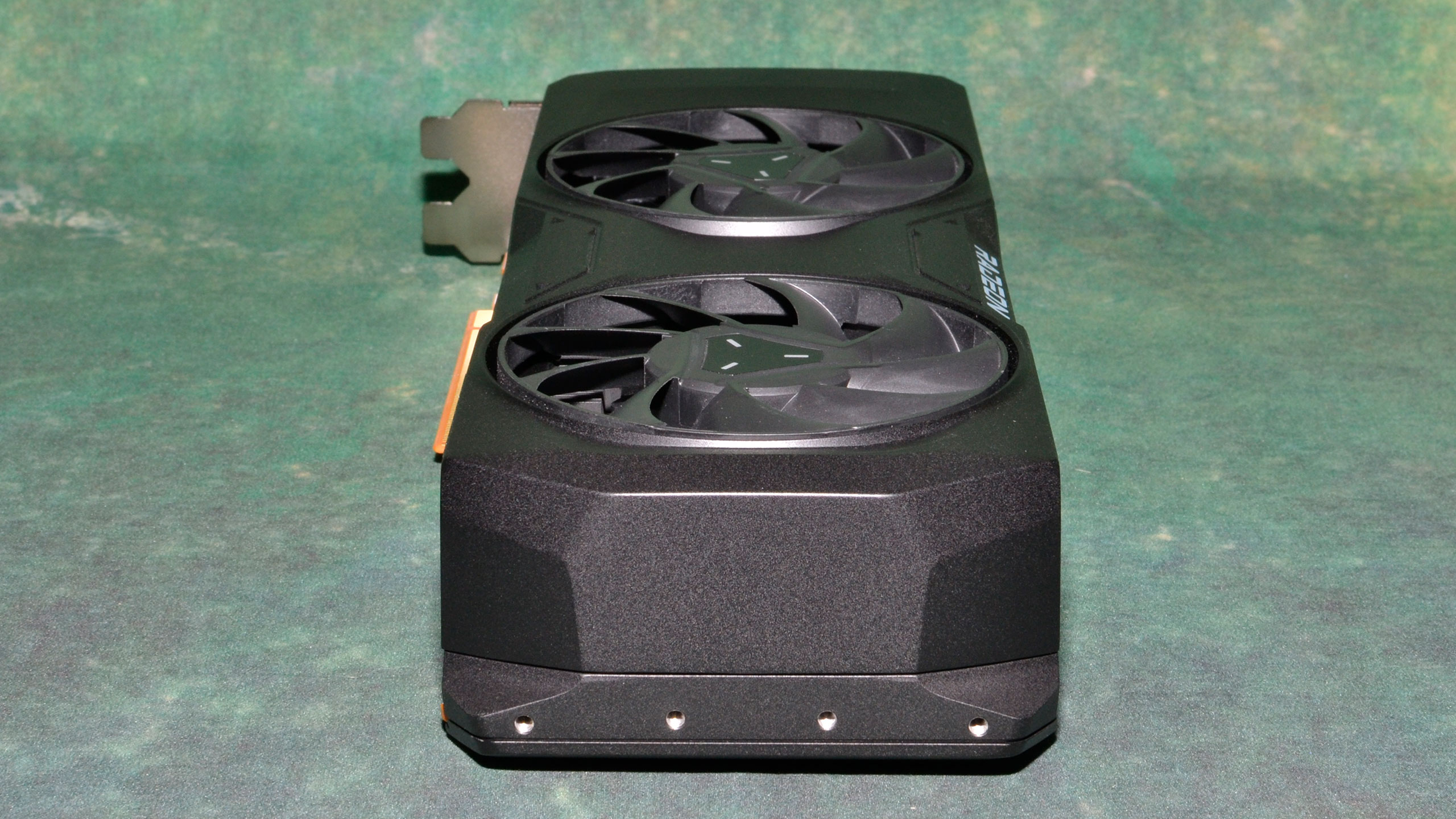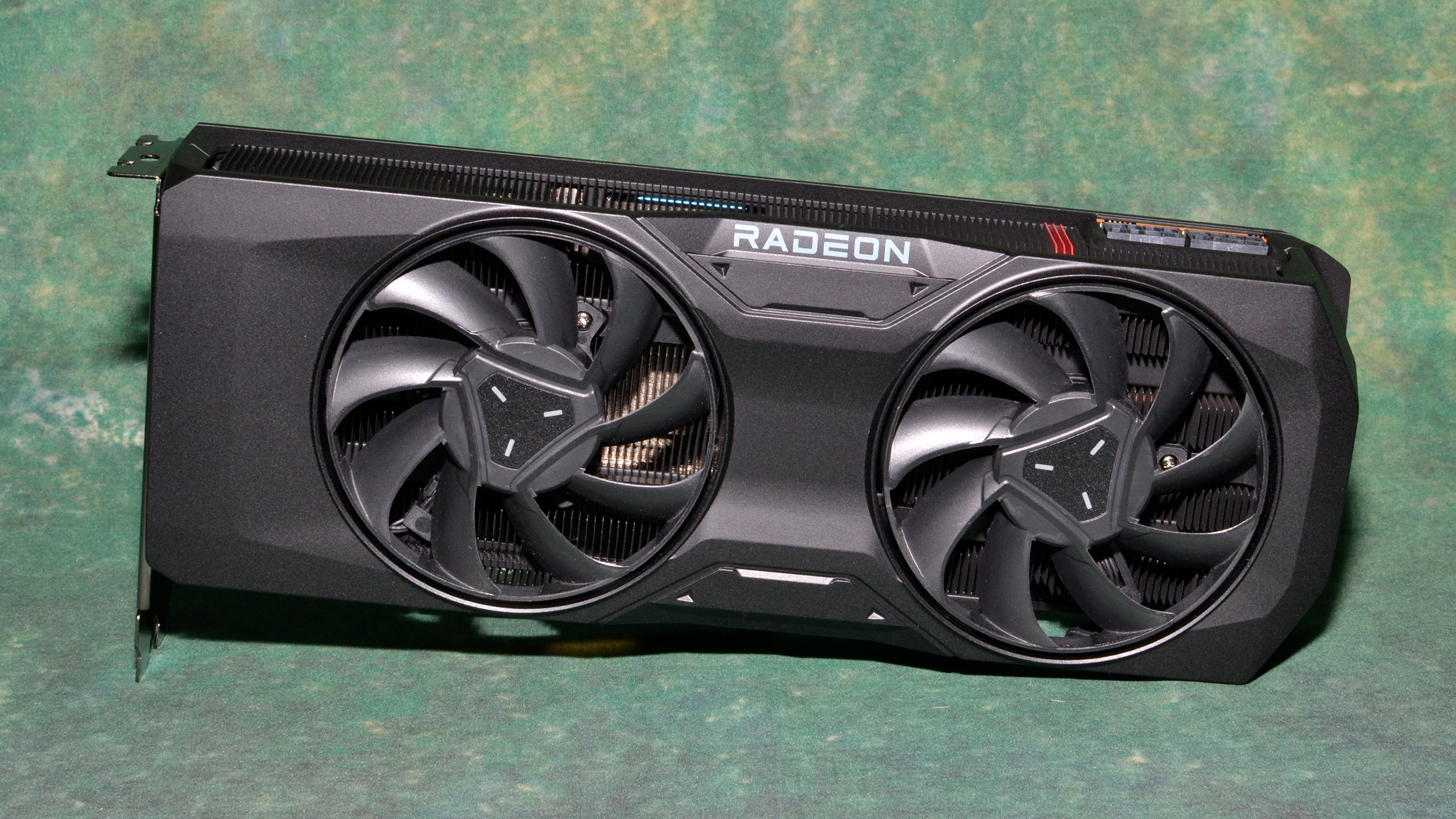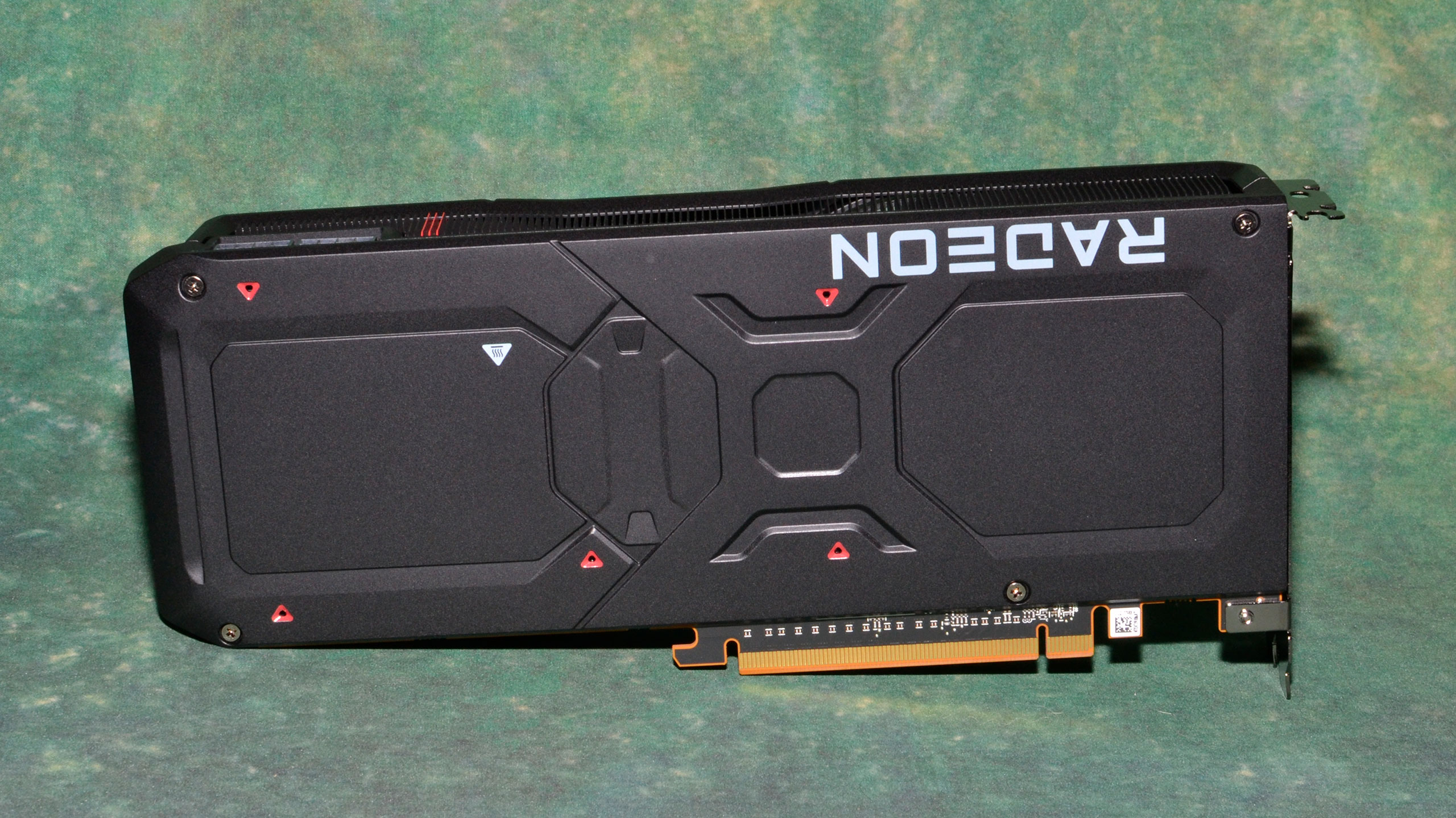Why you can trust Tom's Hardware
The Radeon RX 7800 XT isn't much of a surprise, delivering performance right in line with what we expected to see. It's slightly faster than the previous generation RX 6800 XT, consumes a bit less power, and nominally costs $150 less than its predecessor. Nine months after the RDNA 3 reveal, we finally have mid-tier parts to fill out AMD's current GPU lineup. Does that mean AMD and its partners have cleared out most of the remaining inventory of RX 6000-series GPUs? We're not sure, but whether they're gone or not, AMD is moving on.
If the RX 6000-series parts were to disappear from the market right now, the RX 7800 XT would look and feel a lot better. Nvidia has generally been better about clearing out inventory of previous generation parts before the new stuff arrives, and we can't help but feel Navi 32 and the RX 7800 XT would have been ready for launch six months ago if market conditions were better.
But market conditions are not great, though they do appear to be improving. The RX 7800 XT does have to make a name for itself amid previous generation GPUs that have been selling right in its price range for half a year or more. It's still better than the 6800 XT, but anyone in the market for a $500 AMD GPU may have already scratched that itch.

The RX 7800 XT falls into the same quagmire we've seen with other GPU launches since last year. With only a few exceptions, most of the generational "upgrades" feel more like the proverbial two steps forward, two steps back. The 7800 XT serves a purpose, and it's not a bad card, but it's also not particularly exciting. 5% more performance and 17% less power use, for basically the same going rate, represents a small step forward.
Anyone looking to buy a new $500 graphics card should certainly consider the RX 7800 XT. But if you already have a decent gaming PC with a GPU made in the past four years, you can almost certainly sit this generation out and wait to see what happens with RDNA 4 and "Nvidia-Next" — maybe Blackwell, though that could just as well be the next data center part.
There's still Nvidia's offerings to consider as well. For rasterization performance, AMD makes a strong argument. For ray tracing performance, AI and deep learning, and extra features like DLSS upscaling and frame generation, Nvidia comes out ahead. It's the problem with Nvidia being in the driver's seat for the graphics market, but while it might sound like a good idea to support the underdog, plenty of people are just as happy supporting the market leader.
Out of the RX 7800 XT and RX 7700 XT, there's almost no reason to even consider the latter — not unless its price drops another $50 at least. Power requirements are basically close enough to be the same, and performance favors the 7800 XT by up to 20% in plenty of games, sometimes more. For the extra 11% in nominal pricing, this is the Navi 32 part to get. It feels a lot like the RX 7900 XTX and 7900 XT launch, where the lesser card cut performance too far without a price cut to match. The market eventually figured things out, and that's why the 7900 XT now sells for $750 rather than $900, and something similar may end up happening to the 7700 XT.
The biggest issue is that the 7800 XT doesn't fundamentally offer much in the way of substantive improvements over the existing RX 6800 XT. Yes, it has AV1 encoding support, but if that's your use case, Nvidia's encoding quality is better. It also has DisplayPort 2.1 support, but monitors that actually use and need the new standard are still MIA, and you can do just fine with existing HDMI 2.1 and DP1.4 connectors.
If you have $400–$600 to spend right now, and you want a new graphics card, your options consist of AMD's new 7800 XT and 7700 XT, going up against Nvidia's RTX 4060 Ti, RTX 4060 Ti 16GB, and RTX 4070. You can make valid arguments for most of those cards, and they'll generally deliver a good gaming experience, but none end up as the runaway favorite. The 7800 XT might be the best of that batch, but there are still plenty of caveats and disclaimers to consider.
- MORE: Best Graphics Cards
- MORE: GPU Benchmarks and Hierarchy
- MORE: All Graphics Content
Get Tom's Hardware's best news and in-depth reviews, straight to your inbox.
Current page: Radeon RX 7800 XT: The Sideways Shuffle
Prev Page Radeon RX 7800 XT: Power, Clocks, Temps, and Noise
Jarred Walton is a senior editor at Tom's Hardware focusing on everything GPU. He has been working as a tech journalist since 2004, writing for AnandTech, Maximum PC, and PC Gamer. From the first S3 Virge '3D decelerators' to today's GPUs, Jarred keeps up with all the latest graphics trends and is the one to ask about game performance.
-
oofdragon IMO its good at $500 since its on par with 6950XT when overclocked. Lets be honest It should have been at least a hair faster than the 6950XT at factory settings but since its $100 cheaper and virtually runs games just the same, its a solid offering. I feel though that at 1440p a card like the 6800XT is plenty enough, now at around $400 on eBay... and while the 7700XT could be a good deal at around that price, we also have the RX6800 with 16GB for $100 less......Reply
My two cents then, anyone into 60fps gaming should just stick with the 6700XT for 1080p and 6800XT for 1440p, why spend more to get the same? At 4K theres the 7900 series for $700/$800 playing any game just the same as the 4090 at half the price, AMD is a no brainer this gen. I went 7900 also for high refresh 1440p and that single game worth playing with RT enabled -
AgentBirdnest From the perspective of a 1440p RTX 2060 owner - who has had my heart set on, and has been saving up for an RTX 4070 for the last few months, I have to say:Reply
I wish I bought a Free-Sync instead of G-Sync monitor (there was no "G-Sync compatible" at the time.) Because the 7800XT is mighty compelling. 4070-like performance for $100 cheaper, and even the ray-tracing performance is close enough that I probably wouldn't notice in most games. A 50-watt difference is actually enough to make me uncomfortable after an hour of gaming in this room. But for $100 less than the 4070, I might be able to live with that.
But I can't live without my variable refresh rate, and am not willing to splurge on a new monitor that I don't need. So, a higher-priced card for me, unless Nvidia drops the price a few bucks or makes a compelling Super-refresh before the end of the year, but I won't hold my breath.
The 7700xt is just... puzzling. All I have to say is, "Why?"
As always, props for the great review, Jarred! I haven't read through every page just yet, I'll do that a bit later. But the benchmarks and analysis I saw so far look great. Thanks for the hard work. -
Elusive Ruse It's a better 6800XT at a lower price, nothing exciting as far as generational leap goes but it beats every card at its price point.Reply -
Frozoken Just so u know u absolutely need to undervolt amd cards when overclocking them to get extra performance. Techpowerup was seeing roughly 15% gains in fps from their ocReply -
Avro Arrow Reply
Sure, but it's SUPPOSED to do that. The cost per frame is SUPPOSED to go down every generation. Remember how the $500 RTX 3070 was slightly faster than the $1200 RTX 2080 Ti? That's what's supposed to happen.Elusive Ruse said:It's a better 6800XT at a lower price, nothing exciting as far as generational leap goes but it beats every card at its price point.
The RX 7800 XT is supposed to be Navi 31, just like the RX 6800 XT is Navi 21. AMD is royally screwing people here with a deceptive naming scheme. -
Colif it competes well against 4070 if you don't use RT, and its cheaper.Reply
It walks all over both 4060 models.
neither AMD or Nvidia have a perfect record this generation when it comes to naming really. -
Elusive Ruse Reply
I don't buy GPUs based on their names. For me it's quite simple; I buy the best bang for my buck regardless of the badge and name.Avro Arrow said:Sure, but it's SUPPOSED to do that. The cost per frame is SUPPOSED to go down every generation. Remember how the $500 RTX 3070 was slightly faster than the $1200 RTX 2080 Ti? That's what's supposed to happen.
The RX 7800 XT is supposed to be Navi 31, just like the RX 6800 XT is Navi 21. AMD is royally screwing people here with a deceptive naming scheme. -
Upacs Reply
Exactly. What matters is price/performance ratio (and features and stability). Naming is irrelevant and only for the clueless consumer that assumes higher is always better. But none of those here, right?Elusive Ruse said:I don't buy GPUs based on their names. For me it's quite simple; I buy the best bang for my buck regardless of the badge and name. -
PEnns I am really tempted to buy the 6800 XT and call it a day (and wait for another 2-3 years maybe).Reply
The 7800 XT seemed like a decent new card - but the deal breaker was the loudness but nothing else really.

